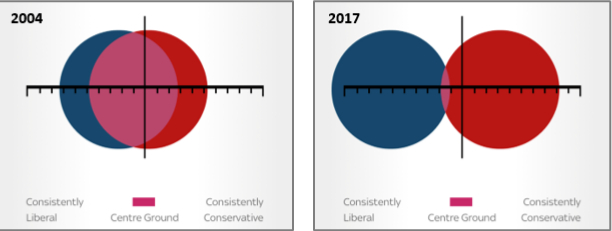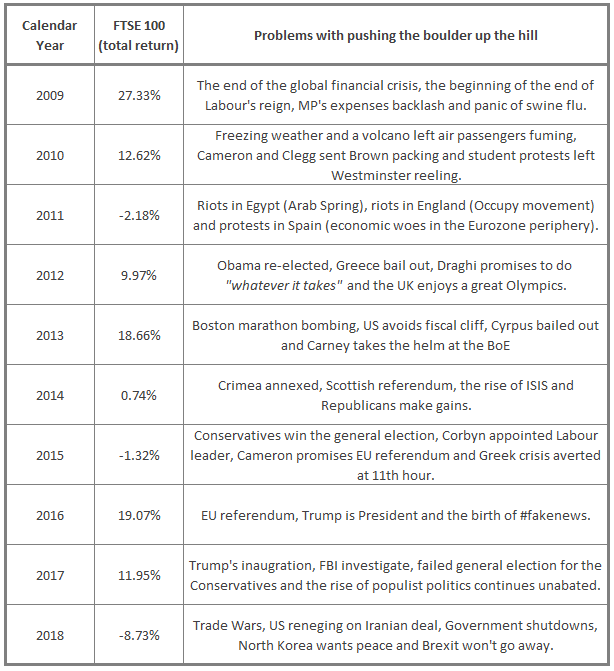Welcome to the new title of our weekly publication – ‘The World In A Week’. This replaces our previous ‘Windy’ title as it better describes what we are researching and publishing. The content will remain the same and this week we are focusing on ‘A Sisyphean Task’
King Sisyphus as punishment for believing himself smarter than Zeus was forced to roll a huge boulder up a hill each day, hampered every step of the way by winged demons, only for it to return to the bottom each morning.
Politicians are showing themselves to be modern day Sisyphus’, thinking they are smarter than they are, trying to make deals when there are no more deals to be made. Their boulder can be characterised as Brexit or the US Government shut downs, their winged demons are the opposition parties and our punishment is to watch the futile battle of gradient versus gravity depicted as the infamous can forever being kicked down the road.
The closure of the US government
The effects of the record-breaking US government shutdown has already rippled through the US economy, adding to the woes of companies already scarred by a slowing economy, ongoing trade disputes and a turbulent stock market.
It stems from the Republicans and the Democrats trying to agree the funding extension of the US budget. Agreement was made before Christmas; however, President Trump threw in a curve ball demanding funding for his wall to be included. An agreement could not be reached, which forced a sizeable portion of the US government to be shutdown. This standoff lasted 35 days and has only been given a short repeal for three weeks. Why the trouble to find a centre ground? From the charts below, in 2004, both parties shared a large centre ground, arguably brought about from the aftermath of the terrorist attacks in 2001. Since then the parties have moved steadily apart and the polar views have never been wider.

So, it comes as no shock that a deal is struggling to be made between the two parties and that boulder keeps being pushed up the hill, only to end up right where it started.
Trying to agree on Brexit
Roll the boulder up the hill. Let it fall. Put forward a deal for Brexit. Let it fail. Last week Parliament could not decide, so it left the Prime Minister backing an amendment that rejected the deal she had previously negotiated, a deal that was the final deal, and go try a bit harder. This promise of renegotiating the Withdrawal Agreement, something that was impossible a couple of weeks ago and made more so by the EU rejecting further negotiations, does this create a new definition of futile?
The boulder in this tale is Jeremy Corbyn, looking to delay the decision at every step, without knowing what that would achieve.
The legally binding agreement to extend Article 50 failed, so a non-binding version was passed. Parliament has said it does not want a ‘no deal’ but refuses to take the option off the table. The government backed an amendment and would like to find alternative arrangements; however, apart from yet to be identified new technological solution, nobody knows what the alterative arrangement should be.
Has there always been a boulder?
We have always had politics, politicians and policymakers to worry about. The only certainty is that we will always have uncertainty. What does that mean for investments? Should we not invest? Absolutely not. It does mean we should invest on fundamentals and most importantly for the long-term. We can be cognisant of political ineptitude but not let it drive our decision making.


